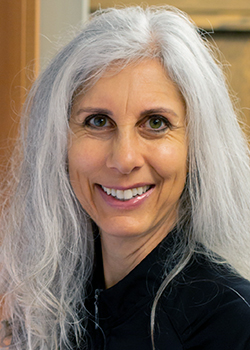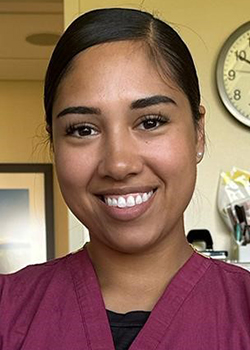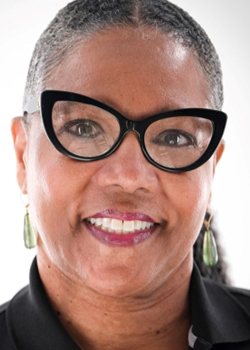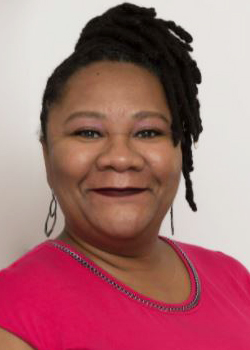CDA certification makes career-long impacts

If there’s one thing dental assistants can count on throughout their careers, it’s change. From learning about new technology, equipment, and procedures to taking on expanded responsibilities in the dental practice, the profession is always evolving.
Certification has been a constant for thousands of dental assistants — helping them navigate these changes, stay up to date on developments in dentistry, and ultimately advance in their careers.
“Earning my certification is one of the greatest accomplishments in my career,” says Robin Wilson-Givens, CDA. “I have a bachelor’s degree in human relations and a master’s degree in education, but I don’t think I would have ever accomplished those things had it not been for dental assisting.”
This year marks the 75th anniversary of Certified Dental Assistant (CDA) certification. Wilson-Givens is one of approximately 35,000 current CDAs, and over 100,000 dental professionals have earned the certification since its inception in 1948. Some dental assistants have maintained their certification for more than half a century.
“Earning my certification is one of the greatest accomplishments in my career. I have a bachelor’s degree in human relations and a master’s degree in education, but I don’t think I would have ever accomplished those things had it not been for dental assisting.”
— Robin Wilson-Givens, CDA
Wilson-Givens has been certified for just over a decade, but she had worked in the dental assisting profession for more than 30 years prior. As she looked ahead to the next step in her career, earning CDA certification opened up a new opportunity in education.
“It took me years to get mine because I was never really encouraged to do it,” says Wilson-Givens. “What prompted me earn it was becoming a teacher.”
Sheila Brown, CDA, CDIPC, CDHC, has taken a similar career path. She started her career as a dental assistant in 1991 and became certified a few years later.
“It was very intimidating, but I passed,” Brown recalls about earning her CDA certification. “I have always been a goal-oriented person, so I wanted to get this under my belt because I was sure this was going to benefit me in the future.”
Indeed, it did. Brown became a “go-to person” in her career because of the continuing education required to earn and maintain certification, and for regularly volunteering and attending seminars, lectures, and conventions to fuel her knowledge. Brown’s love of learning eventually helped her transition to teaching.
“It opens up other job opportunities for educating, mentoring, and going into sales and marketing. Private and corporate businesses acknowledge and see the leadership of CDAs.”
— Sheila Brown, CDA, CDIPC, CDHC
“Continuing to learn and having that CDA has opened many doors for me in oral health education and to become an advocate,” she says.
Brown has also seen certification help her colleagues discover new opportunities as their careers progressed.
“It opens up other job opportunities for educating, mentoring, and going into sales and marketing,” Brown explains. “Private and corporate businesses acknowledge and see the leadership of CDAs.”
Now semi-retired, Brown still maintains her certification and remains active in the dental community, serving as president of the North Carolina Dental Assistants Association and a board director of the American Dental Assistants Association.
“I would not have been able to achieve these accomplishments without being a CDA,” says Brown.
CDA certification can also have personal impacts. For Renee Odmark, who has been a CDA for 35 years, holding certification has allowed her to perform expanded functions. But it also provided comfort early in her career because she knew the credentials could carry over from state to state if she ever needed to move.

“Having that credential is just an extra thing that sets you apart.”
— Renee Odmark, CDA
“When you’re young, you’re in your 20s, you don’t know what life has ahead for you,” says Odmark. With CDA certification, “No matter what lies ahead, you can adapt,” she adds.
These experienced dental assistants also encourage up-and-coming professionals to earn CDA certification.
Wilson-Givens urges all her students to become certified. “I tell my students that it’s something no one can take away from you,” she says.
Brown agrees that it can provide valuable opportunities to younger dental assistants making their way in the field.
“Higher education, of course, is very important, but I know it’s not something that’s afforded to everyone,” she explains. “To be able to get this certification opens doors to other things.”
Odmark says, “Having that credential is just an extra thing that sets you apart.”
Aaliyah Emerick is one example of this. She recently became certified in January 2023 and has already started seeing the benefits.
“I wanted to perform other functions, and I feel like having that certification allows me to advertise that I’m able to do more for my doctor and the patients,” explains Emerick.
Emerick has been a dental assistant for about four years and currently serves in the U.S. Air Force. She says that although she already had experience as a dental assistant, becoming a CDA has strengthened her knowledge even further.

“It allows me to further my knowledge at an early stage and learn about the ever-changing dental world.”
— Aaliyah Emerick, CDA
“It just opens so many more doors for me, like going to conferences and meetings,” says Emerick. “It allows me to further my knowledge at an early stage and learn about the ever-changing dental world.”
Becoming certified also added a boost of confidence early in her career.
“In the Air Force, continuing education is super important,” she explains. “Now, my providers look at me as that go-to person because I’ve proven myself.”
She adds: “It’s just made me feel good about myself because it’s an accomplishment I can mark off my bucket list. Given that it is the 75th anniversary, being part of that history is something I can say that I did.”



